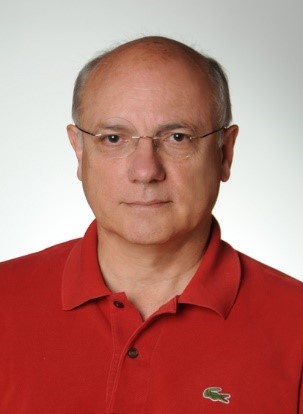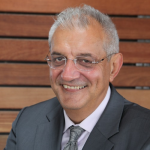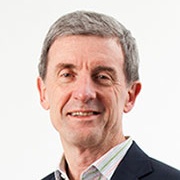
To Be Announced (TBA)
To Be Announced (TBA)
Vladimiro Miranda is an IEEE Fellow since 2006 and recipient of the IEEE PES Ramakumar Family Renewable Energy Excellence Award 2014. He holds presently the following responsibilities:
He was President of INESC Macau, China, and International Advisor for the Hong Kong Polytechnic University, China. He has been serving also as evaluator of R&D institutions for CONICET, Ministry of Science, Argentina. Besides responsible for many projects in Europe, the USA and Brazil, he served in the Board of start-up companies generated by INESC TEC. He is the author/co-author of many publications in top international scientific journals (SCOPUS h-index: 37 in mar.2021). His main interest domain has been the application of computational intelligence to power systems. His innovative solutions have been incorporated in industrial products in use in several continents.

The Interaction of Electric Vehicles with the Power Grid
The transportation sector has a significant impact on the environment, being responsible for around 25% of the total greenhouse emissions globally. As a result, the number of EVs in the last years has significantly increased, while many types of EV-charging options are available. In this respect, uncontrolled charging of EVs could provoke significant issues for the grid, which would require significant infrastructure reinforcements. The presentation will discuss smart charging and V2G methodologies that can mitigate the impact of uncontrolled charging on the network. Moreover, synergies among the EV-charging and Renewable Energy Resources (RES) will be presented, indicating the effective shifting of the EV charging demand towards hours with increased RES production and the potential to increase both the number of EV-chargers and the grid’s RES hosting capacity. The presentation will also discuss future trends in electromobility in Europe, including interoperability and the need for a unified system approach (EVs - Charging Infrastructures - Services provision - Business activities) for efficiently serving the relevant transportation needs. On-going e-mobility projects in non-interconnected islands will be finally presented.
Nikolaos Hatziargyriou received the Diploma in Electrical and Mechanical Engineering from National Technical University of Athens in 1976 and the MSC and PhD degrees from UMIST, Manchester, UK in 1979 and 1982, respectively. Since 1984 he is with the Power Division of the Electrical and Computer Engineering Department of NTUA and since 1995 he is full professor in Power Systems. Since April 2015 he is Chairman and CEO of the Hellenic Distribution Network Operator (DEDDIE). From February 2007 to September 2012, he was Deputy CEO of the Public Power Corporation (PPC) of Greece, responsible for Transmission and Distribution Networks, island DNO and the Center of Testing, Research and Prototyping. He is Fellow Member of IEEE, past Chair of the Power System Dynamic Performance Committee, Honorary member of CIGRE and past Chair of CIGRE SC C6 “Distribution Systems and Distributed Generation”. He is co-chair of the EU Technology and Innovation Platform on Smart Networks for Energy Transition. He is member of the Energy Committee of the Athens Academy of Science. He has participated in more than 60 R&DD Projects funded by the EC and the industry and has coordinated among others, "CARE", "MORE CARE", "MERGE", “Microgrids” and “More Microgrids”. He is Editor in Chief of the IEEE Transactions on Power Systems and member of the Editorial Board of IEEE Transactions on Sustainable Development and the IEEE Power and Energy magazine. He is author of the book “Microgrids: Architectures and Control” and of more than 200 journal publications and 500 conference proceedings papers. He is included in the 2016 Thomson Reuters' list of the top 1% most cited researchers.

The Transition to Net Zero: is an Objective of 100% Renewables Realistic
Australia can achieve a net-zero carbon emissions electricity system without threatening affordability or reliability of supply. However, we should not rush to 100 per cent renewable energy, because ensuring reliability would be costly without major technological advances – especially in the depths of winter when demand is high, solar supply is low and persistent wind droughts are possible. Net-zero by the 2040s is an appropriate commitment.
Tony has been Director of the Energy Program since 2011 after 14 years working at Origin Energy in senior executive roles. From 2009 to 2014 he was also Program Director of Clean Energy Projects at the Clinton Foundation, advising governments in the Asia-Pacific region on effective deployment of large-scale, low-emission energy technologies. In 2008, he was seconded to provide an industry perspective to the first Garnaut climate change review. In January 2018, Tony was awarded a Member of the Order of Australia in recognition of his significant service to conservation and the environment, particularly in the areas of energy policy, climate change and sustainability. In October 2019, Tony was elected as a Fellow to the Australian Academy of Technology and Engineering. .